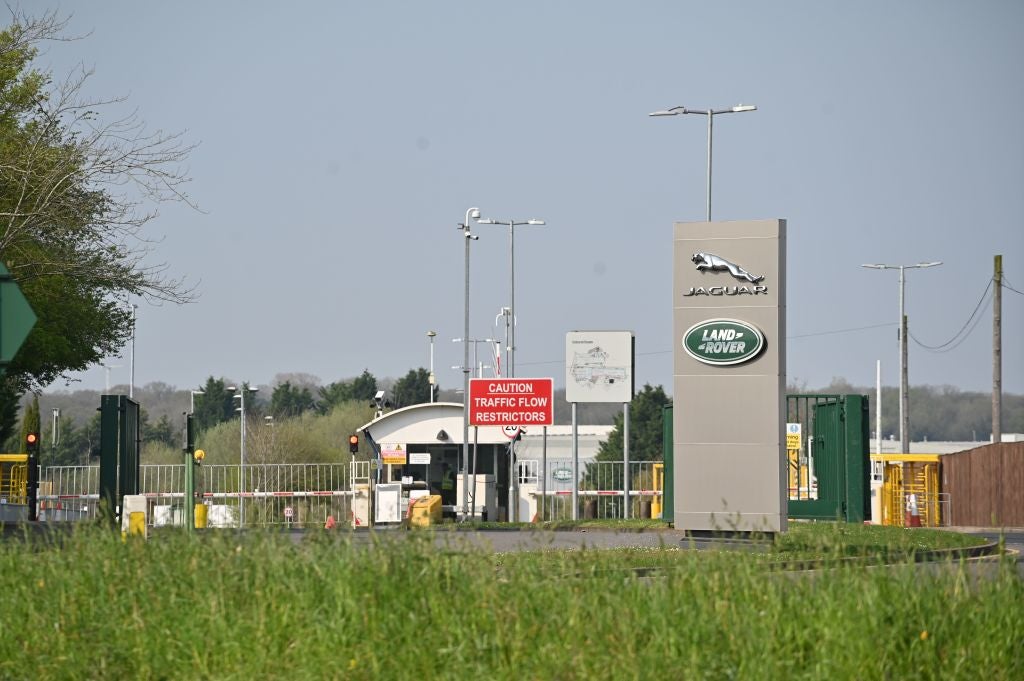The news, reported by Bloomberg, that Jaguar Land Rover (JLR) is considering locating the assembly of a range of its electric vehicles (EVs) in Slovakia should be a flashing red warning sign to the UK government.
While the UK takes tentative steps towards building up battery production capacity, an avalanche of gigafactory facilities are being planned globally.
Gigafactories form a vital part of UK Prime Minister Boris Johnson’s levelling up and net-zero plans. The government’s £1bn Automotive Transformation Fund (ATF) is intended to support the development and industrialisation of EV technologies. Yet if JLR is looking to place new EV production outside of the UK, it suggests more needs to be done.
The UK government is no stranger to state intervention, such the furlough scheme during the Covid pandemic or its windfall tax on energy companies, but it is clearly reluctant to tip the scales. It is hugely doubtful whether Johnson and co are willing to commit to the scale of state support the UK automotive industry will need to compete internationally.
The Prime Minister seems stuck between the entrenched free-market ideology of his Conservative Party and his own fondness for eye-catching public spending. He reminds me of my nephew, who is obsessed with dinosaurs but keeps his encyclopaedic knowledge secret from his football-loving friends for fear of rejection – and like an 11-year-old, Boris Johnson lacks the emotional maturity to know how to balance those competing instincts.
As the 2030 ban on the sale of internal combustion engine vehicles nears, mainland Europe will increasingly be competing with the UK for automotive investment. The UK risks being left behind.
Limited progress on UK gigafactories
Envision is the only battery manufacturer to be producing packs commercially in the UK, at its Nissan plant in Sunderland, with plans to expand these facilities to 38 gigawatt hours (GWh) by 2024.
Several other companies have expressed an interest in developing gigafactories in the country, yet Britishvolt is the only one with a firm plan in place. It aims for its 30GWh plant in Blyth in north-east England to start operations in 2023.
The UK is not keeping pace with the expansion of battery production facilities in the EU or in wider Europe, however. According to data from the EU’s important projects of common European interest fund, battery production capacity in Europe will be between 600GWh and 870GWh by 2030 and the UK will account for just a fraction of that.
The threat of Brexit to the UK automotive industry has been limited in the short term, due to the sticky nature of investments in large-scale manufacturing plants.
This is evidenced by data that shows foreign direct investment into the UK automotive sector grew 25% between 2019 and 2020, and that the UK was the eighth most popular destinations for automotive FDI globally over those two years.
The UK FDI performance looks particularly strong in a global context, given the sharp fall in investment seen in other regions during the height of the Covid pandemic. Yet it is the UK’s European neighbours that it is going to be most directly competing with in the EV market, and countries such as France (100% increase), Turkey (36.8%) and Germany (27.5%) saw even sharper rises in automotive investment over the same period.
The shift towards EVs is an existential challenge for the UK automotive sector over the long term, given the need to develop new local supply chains. Put simply, if EV manufacturers cannot source batteries locally, they will eventually move their production facilities to a location where they can. This is why building out sufficient gigafactory capacity is so vital to the future health of the UK automotive sector.
Is the UK government doing enough to build gigafactories?
There have clearly been some successes in the UK government’s policy for supporting the EV sector.
When in October 2021 it was announced that Ford was investing £230m in its Hazelwood factory to make EV components, the US company cited the assistance from the government’s ATF as a key reason behind this decision. Britishvolt is another recipient of funding from ATF.
Yet, at €6bn, the public funding commitments of EU countries to building battery capacity is even greater. The EU leads the UK on both existing battery production capacity and planned projects.
The rules of origin requirements in the Brexit deal further heighten the dangers for the UK automotive industry. By 2027, 55% of the final car value must be comprised of components originating in the EU or UK, or the vehicles traded between the two jurisdictions will be subject to a 10% tariff. This could be crippling to the UK sector, given that 80% of UK-made vehicles are exported and half go to the EU.
The UK’s automotive lobby group, the Society of Motor Manufacturers and Traders, has previously called for a firm government commitment to build out 60GWh of battery production capacity in the UK by 2030, in addition to the planned Britishvolt plant.
It also called for 2.3 million EV charge points to be installed nationwide and for support to be given to develop a 2GWh fuel cell gigafactory by the end of the decade, as well as calling for long-term trade and skills strategies for the sector. Given UK automotive adds £11.9bn to the UK economy and supports approximately 800,000 jobs, it is time for the UK government to look again at these suggestions.





